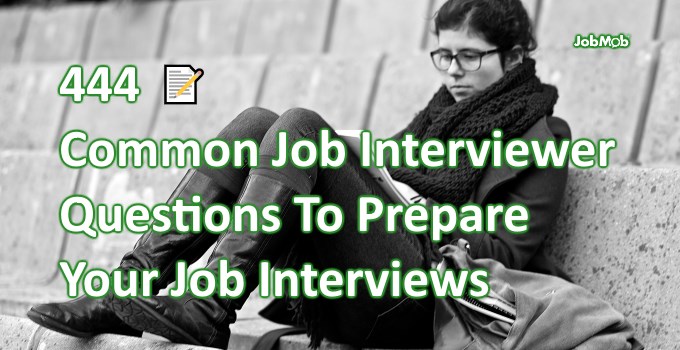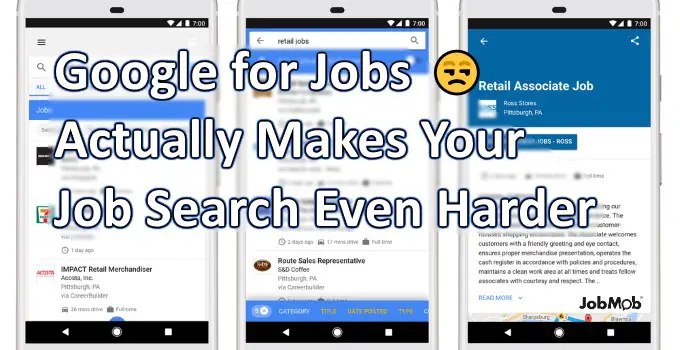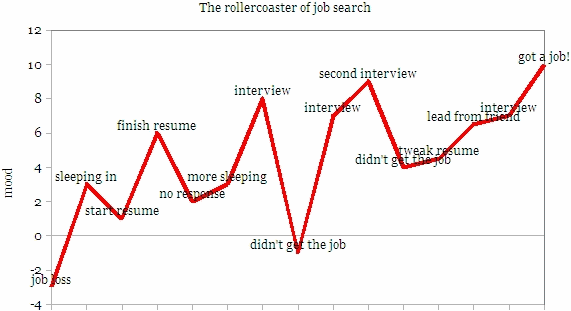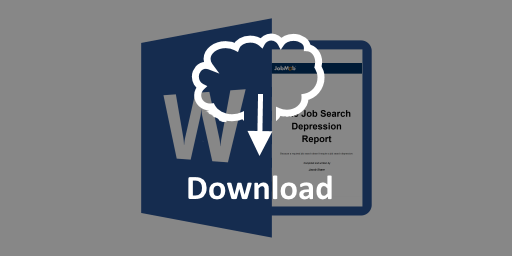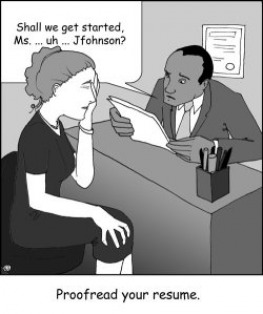Practice for your next job interview with questions recruiters actually ask.
Some of these questions are what you’d expect.
Some of these questions frankly don’t make much sense.
And some of these questions are shocking and possibly offensive.
But as the questions most likely to be asked, you need to be ready.
Note: There is a poll embedded within this post, please visit the site to participate in this post's poll.Sample Job Interview Questions Recruiters Ask

This article was the inspiration for the book Winning Answers to 500 Interview Questions by Lavie Margolin, where you can get all the popular interview questions and recommended answers in a handy reference format. Check it out.
On to the list…
Questions 1-80 are about personal background.
Questions 81-178 relate to work experience.
Questions 179-235 cover your education or academic background.
The rest are about your personality, motivations and thoughts on work.
Free bonus: The One Job Interview Resource You’ll Ever Need is a handy reference to help you prepare for any kind of job interview. Download it free now
- Tell me about yourself.
- What major challenges and problems did you face?
- How would someone who dislikes you describe you?
- What was your biggest failure?
- What is your definition of failure?
- What are your regrets?
- What is your greatest weakness?
- When was the last time you were angry? What happened?
- If you could relive the last 10 years of your life, what would you do differently?
- Tell me about a time when you helped resolve a dispute between others.
- What are your goals?
- What is your dream job?
- What are three things your former manager would like you to improve on?
- Tell me about an accomplishment you are most proud of.
- Are you a leader or a follower?
- What are some of your leadership experiences?
- Why aren’t you earning more money at this stage of your career?
- Who has inspired you in your life and why?
- What techniques and tools do you use to keep yourself organized?
- What is your personal mission statement? OR Give a one sentence statement of yourself.
- What is your greatest achievement outside of work?
- Tell me one thing about yourself you wouldn’t want me to know.
- What is your favorite memory from childhood?
- What two or three accomplishments have given you the most satisfaction? Why?
- What are your hobbies?
- What sports do you play?
- What kind of games do you like to play?
- What do you do in leisure/spare time?
- What do you do to deal with stress?
- What do you do to help balance life and work?
- Would you rather be liked or feared?
- How competitive are you?
- Tell me about a time when you used your creativity to overcome a problem.
- Which of your skills, technical or otherwise, has most helped you on the job?
- What new skills have you learned or developed recently?
- What sort of things have you done to become better qualified for your career?
- What were your responsibilities? (e.g. in your last job)
- What have you done to improve your knowledge in the last year?
- Do you have a favorite quote? What is it?
- Who is your role model and why?
- Who do you respect? Why?
- Tell me about someone you admire and why?
- What unique experiences separate you from other candidates?
- What kind of person would you refuse to work with?
- What are your long-range and short-range goals and objectives, when and why did you establish these goals and how are you preparing yourself to achieve them?

- Give me an example of an important goal that you set in the past and tell me about your success in reaching it.
- What do you really want to do in life?
- What are the most important rewards you expect in your career?
- What are your best skills?
- What is the most difficult adjustment you have ever had to make?
- What two or three things are most important to you in a position?
- What are you interested in outside of your career?
- What is the last movie you watched? Did you like it?
- Give an example of a time you misjudged someone.
- What have you learned from your mistakes?
- Give an example of a time when you made a mistake because you did not listen well to what someone had to say.
- Describe times when you were not satisfied or pleased with your performance. What did you do about it?
- Describe a time when you had to make a difficult choice between your personal and professional (or academic) life.
- What do you do if you can’t solve a problem on your own?
- How has your job affected your lifestyle?
- What was the most useful criticism you received? Who was it from?
- Site an example from your personal life when you were dishonest to someone?
- What you have learned ever since you were born?
- Write to us about an incident in your life that shows how you faced a difficulty/challenge and how you handled it.
- Describe how you have persevered with a difficult problem in order to achieve a successful outcome.
- What experience in your life has taught you the most?
- Who do you contact and communicate with on a regular basis and for what purpose?
- What types of people do you get along with and why.
- What was the most traumatic experience to happen in your personal life?
- When you go on holiday, when do you pack your case?
- What do you consider yourself good at doing?
- On what do you spend your disposable income?
- What’s the most important thing you’ve learned in life?
- What is your greatest fear?
- Tell me about a problem you solved in a unique way. What was the outcome?
- Tell me about a time when you made a decision without all the information you needed.
- How frequent do you add contacts to your address book? Do you think it is worth building network of contacts?
- Do you think it is worthwhile to establish new relationships? What are the consequences of building new relationships in your professional and personal life?
- How will you judge yourself successful? How will you achieve success?
- What have you learned from your experiences outside the workplace/classroom?
- Why was there a gap in your employment between [insert dates] and [insert date]?
- What applicable attributes/experience do you have?
- What did you like or dislike about your previous job?
- Have you ever had difficulty working with a manager?
- Who was your best boss and who was the worst?
- Tell me about a time when you disagreed with your boss.
- If your boss gives you a mountain of tasks at 3:00 and says she needs them by 5:00, but you know you can’t finish them in time, what do you do?
- Tell me about the worst boss you ever had.
- If you know your boss is 100% wrong about something, how would you handle it?
- Describe a situation where you did not agree with something your boss asked you to do and how you resolved the problem.
- Why did you quit your job?
- What experience do you have in this field?
- What would your previous supervisor say your strongest point is?
- Tell me about the most boring job you’ve ever had.
- Have you been absent from work more than a few days in any previous position?
- Do you have the stomach to fire people? Have you had experience firing (many) people?
- Why have you had so many jobs?
- What’s the most difficult part of being a (job title)?
- Can you describe a time when your work was criticized?
- Can you give me an example of your creativity/managerial/organizational skills?
- Describe a situation in which you lead a team.
- Have you ever worked in a job that you hated?
- What was your starting and ending rate of pay at your last position?
- What is your salary history?
- Did you receive any promotions or raises?
- Tell me about your most significant work experience.
- Which areas of your work are most often praised?
- Which areas of your work are most often criticized?
- Do you take work home with you?
- How many hours do you normally work?
- Tell me about the funniest role you have had on a job/project.
- Have you ever been given too heavy a workload? If yes, how did you handle that situation?
- In what part-time or summer jobs have you been most interested? Why?
- What do you consider the most important idea you contributed or your most noteworthy accomplishment in your last job?
- Give me an example from a previous job where you’ve shown initiative.
- What specific skills acquired or used in previous jobs related to this position?
- Whom may we contact for references?
- Can you provide references from your current or previous employer?
- What motivates you to put forth your greatest effort? Describe a situation in which you did so.
- Describe a contribution you have made to a (recent) project on which you worked on.
- What was the name of your most recent employer?
- Have you ever opted to resign from a position? Why?
- Have you ever worked in a position where you felt you were not given enough to do?
- How do you determine your priorities when you have multiple projects?
- Are you comfortable with strict deadlines?
- Do you check your messages while on vacation?
- What is the worst job you can imagine holding?
- Can you work without supervision?
- Give me an example of a time when you had to conform to a policy or rule that you did not agree with.
- Describe a situation where your results have been below your superiors’ expectations. What happened? What did you do?
- Describe a major change that occurred in a job that you held. How did you adapt to this change?
- What are the steps you follow to study a problem before making a decision?
- What was the most important task you ever had? What was your role?
- How do you get a peer or colleague to accept one of your ideas?
- Have you given any seminars/courses/presentations?
- How did you get your last job?
- Why are you dissatisfied with your present job?
- What would your current employer have to do to make you stay there?
- How did that job influence your career?
- Are you currently under any employment contract obligation form current or previous employers?
- Recall a time from your work experience when your manager or supervisor was unavailable and a problem arose. What was the nature of the problem? How did you handle that situation? How did that make you feel?
- Tell me about a time you had to handle multiple responsibilities. How did you organize the work you needed to do?
- What skills have you acquired from your work experience/internships and part-time jobs?
- When given an important assignment, how do you approach it?
- How does your present position differ from past ones?
- Have you ever been asked to leave a position?
- What percentage of your time is spent on each of your job responsibilities?
- What social obligations go along with a job in this field?
- In what way did this type of work interest you and how did you get started?
- Do you participate in many social activities with your co-workers?
- What kinds of jobs have you held in the past and what did you like most about them?
- Describe a task you have done recently for which you exerted a high level of effort.
- When were you happy at work?
- Given a choice in your work, what do you like to do first?
- Given a choice, what would you leave till last in your work?
- On holiday, what do you miss most about your work?
- Why were you transferred/promoted?
- Given the achievements in your CV why is your salary so low/high?
- How does this job fit into your career plan?
- In your last internship, what tasks did you spend most of your time on and why?
- Can you tell me about a time when you discovered a more efficient way to do a work task?
- Do you always double-check your work?
- Tell me about a time when you were given an assignment, but you were not clear of how to go about it. How did you tackle this situation?
- Can you tell me about a time when you backed off in a meeting because you felt someone else should speak or have an opportunity?
- How would you show co-workers the importance of cooperation?
- Give an example of a time when you assisted a co-worker to enhance their work skills?
- Tell me about a situation when you were given job instructions and you were unable to comprehend the instructions. How did you go about completing the task?
- How often do you discuss and work with colleagues to think up new systems and styles of working?
- Can you tell me about a time when you did something extra, which was not part of the routine activities assigned to you, but you did it for the benefit of the customer?
- Describe a time when you took on additional work to help your team meet a crucial work goal?
- Tell me about a time that you undertook a course of study, on your own initiative, in order to improve your work performance?
- Tell me about initiatives you have taken to improve procedures at work? Were you successful? Would you do anything different now?
- When you need to create an order of job tasks that need to be completed, how do you decide which task has priority?
- When was the last time you used an inventive method to draw out company resources beyond a level that is usually met?
- Explain to me how your work experience is relevant to this position.
- What relevant experience do you have?
- Could you have done better in your last job?
- Why did you leave you last job?

- Discuss your educational background.
- What’s the most important thing you learned in school?
- Why did you choose your major?
- Why did you choose your university and what factors influenced your choice?
- Why did you choose your degree subject?
- What computing skills do you have?
- What is a suggestion you’ve made at work that was implemented?
- Tell me about your experiences at school.
- What has been the most rewarding university experience?
- On a scale of 1-10, how would you rate your vocabulary and grammar skills?
- How has your education prepared you for your job?
- What college subjects did you like best? Why?
- What college subjects did you like least? Why?
- If you could do so, how would you plan your academic study differently? Why?
- What have you learned from participation in extracurricular activities?
- Do you have plans for continued study? An advanced degree?
- What changes would you make in your college or university? Why?
- Tell me about your education.
- What were your favorite classes/activities at school?
- In what ways have your college experiences prepared you for a career?
- Describe your most rewarding college experience.
- Did you enjoy school/college/university?
- How do you think you have changed personally since you started school/college/university?
- Why do you think graduates in [your degree subject] would be good [job role you have applied for]?
- Do you feel your GPA reflects your academic ability?
- Knowing what you know now about your college experience, would you make the same decisions?
- What contributions have you made to a group project?
- Do you have education or training relevant to this position?
- What parts of your education do you see as relevant to this position?
- Is grad school important?
- Are you currently taking or enrolled to take any job related educational courses?
- If you could change or improve anything about your college, what would it be?
- How will the academic program and coursework you’ve taken benefit your career?
- Are you the type of student for whom conducting independent research has been a positive experience?
- Describe the type of teacher who had the most beneficial influence on you.
- Describe the type of professor that has created the most beneficial learning experience for you.
- Do you think that your grades are indication of your academic achievement?
- How was your transition from high school to college? Did you face any particular problems?
- How have you differed from your professors in evaluating your performance? How did you handle the situation?
- Give two examples of things you’ve done in previous jobs or school that demonstrate your willingness to work hard.
- Describe the last time that you undertook a project that demanded a lot of initiative.
- How has college changed you as a person?
- Does your work relate to any experiences or studies you had in college?
- What courses have proved to be the most valuable to you in your work?
- What courses do you wish you had taken that would have better prepared you?
- If you were a college student again, what would you do differently to prepare for this job?
- How important are grades or GPA for obtaining a job in this field?
- What is the best educational preparation for this career?
- How do you think [name of your school]’s reputation is viewed when it comes to hiring?
- If you were entering this career today, would you change your preparation in any way to better facilitate entry?
- Do you apply the skills and knowledge learned at school in your work?
- What do you like best about your school?
- Please describe your own roles and functions in school, college, job, clubs, or other groups.
- Do you feel that grades are a good indicator of your ability?
- What would cause you to miss an assignment or be tardy?
- Tell me about your undergraduate university experience.
- If you were hiring a graduate for this position, what qualities would you look for?
- What do you know about our company?
- What interests you about this job opening?
- What salary range are you looking for? OR What do you feel this position should pay?
- What were your expectations for the job and to what extent were they met?
- What can you do for this company?
- Why should we hire you?
- What do you find are the most difficult decisions to make?
- What is more important to you: money or work?
- Where else have you applied? OR Who else have you applied to/got interviews with? OR Are you interviewing anywhere else?
- Are you willing to relocate or travel? Why should we hire you?
- How do you handle pressure?
- What questions do you have for me?
- Aren’t you overqualified for this position?
- Would you lie for the company?
- What can you tell us about our company?
- What do you know about our competitors?
- How did you hear about this position?
- Would you work holidays/weekends?
- How would you deal with an angry or irate customer?
- How would you fire someone?
- Why do you want this job?
- What is the most difficult thing about working with you?
- Are you willing to make sacrifices for this company?
- Do you know anyone who works with our company?
- What will you do if you don’t get this position?
- How do you take direction?
- Do you prefer working with others or alone?
- Can you summarize the contribution you would make to our organization?
- In what kind of work environment are you most comfortable?
- Why do you want to work for us and not for our competitor?
- If offered this position, how long would you plan on staying with our company?
- What would you do differently if you were in charge of this company?
- Walk me through the important points on your resume.
- What criteria do you use for evaluating success?
- Do you consider yourself a leader? What qualities make a good leader?
- How do you stay current or up-to-date in this industry?
- What qualities do you look for in an employer?
- What is your definition of intelligence?
- What can you tell me about this company that nobody else can?
- What challenges are you looking for in a position?
- Why do you think you would do well at this job?
- What do you expect to be earning in five years?
- Describe the relationship that should exist between a supervisor and those reporting to him/her.
- What two or three things are most important to you in your job?
- Are you willing to spend at least six months as a trainee?
- In a job, what interests you the most/least?
- How would you describe an average day on this job?
- How well defined is the job? Is there a written job description?
- What is important to you in a job?
- What qualities do you find important in a co-worker?
- How will this job fit in your career plans?
- Give me an example of a time when you had to think out of the box.
- What factors most influence your willingness to take a risk?
- In your opinion, what are the advantages and disadvantages of working as a part of a team? Why?
- On a scale from 1-5 (one being the lowest) how do you rate your communication skills?
- If you found out that one of your co-workers was doing something dishonest, what would you do?
- What are your plans for self-improvement and personal development?
- Which of your personal characteristics do you feel enhances your effectiveness in communicating with others?
- If you had an opportunity to develop a basic set of values and beliefs which would serve as a company’s foundation for success, what would those be?
- In your opinion, what is the difference between a vision and a mission?
- What are one or two areas in which you think you could improve your performance?
- How many applications have you made?
- (If you have applied to lots of places) Why haven’t you had many interviews?
- Describe a situation in which you dealt with confrontation, for example a difficult customer.
- What gets you out of bed in the morning?
- How much money do you need to make?
- What expectations do you have for your future employer?
- What challenges are you looking for in a position?
- What is your approach to handling conflict? Solving problems?
- Why are you looking for a new job?
- Do you feel you have strong opinions about others?
- How would you describe yourself to a stranger at a party?
- Are you hoping for advancement within the company?
- Do you meet the application requirements?
- What do you do to attempt to motivate your co-workers?
- What do you do to help those unfamiliar with technology understand it better?
- How do you define teamwork?
- Have you ever postponed a decision? Why?
- If you were CEO of this company, what would you change?
- What are your pet peeves?
- How would you define good customer service?
- What quality of yours or personal trait matters the most in your career?
- Do you need additional training?
- What are your expectations regarding promotions and salary increases?
- How can you stay energized at work?
- Tell me what are the first 5 things you would do if you got this position?
- What training do you think you will require doing this job?
- How do you feel about being on call?
- How do you feel about company politics?
- How much notice do you require?
- How important is money to you?
- Are there any particular companies that interest you?
- Define cooperation.
- Define quality.
- Define service.
- Define commitment.
- Define discipline.
- Define dedication.
- Define integrity.
- How do you define empowerment?
- How do you define arrogance? Are you arrogant?
- How do you delegate authority?
- What do you expect to learn from this job, that you’re not currently getting?
- Would you say that you can easily deal with high-pressure situations?
- Do you have a geographic preference?
- By providing examples, convince me that you can adapt to a wide variety of people, situations and environments.
- What suggestions do you have for our organization?
- Describe a time when you put your needs aside to help a co-worker or classmate understand a task. How did you assist him or her? What was the result?
- What do you do when you are faced with an obstacle to an important project? Give an example.
- Describe a team experience you found disappointing. What could you have done to prevent it?
- What criteria are you using to choose companies to interview with?
- Which is more important: creativity or efficiency? Why?
- What, in your opinion, are the key ingredients in guiding and maintaining successful business relationships?
- What do you prefer: recruitment or selection?
- What kind of person are you?
- What does trust mean to you?
- Which one is better: mentoring or coaching?
- What concerns do you have about this job?
- What do you see as your primary qualifications for this job?
- How much job security do you have in this position?
- What is the next step in your career?
- If your job was suddenly eliminated, what kinds of work do you feel prepared to do?
- What systems are in place to enable employees to give management feedback and suggestions?
- How would you describe the atmosphere at the company? Is it fairly formal or more casual and informal?
- How does a person progress in your field?
- Briefly describe the type of career opportunity you are seeking.
- When can you start to work if hired?
- What are some of your expectations of your future employer?
- Please list three areas you feel have opportunities for improvement
- What significant trends do you see in our industry?
- How would you tackle the first 90 days at this job?
- Do you set goals for yourself?
- What specifically do you do to set examples to your fellow employees?
- Are you looking for a permanent or temporary position at the company?
- Will you take a drug/psychological examination as a condition of employment?
- What would you do to deal with office gossip?
- What gives you the most satisfaction during free/vacation time?
- What may cause your priorities to change in a retail environment and how would you react?
- What would you do to drive additional sales?
- What do you hope to gain from working for our company?
- How do you incorporate fun into your day?
- How ambitious are you?
- In 200 words or less, please tell us why this role appeals to you?
- What do you do when making a mistake?
- Why are you interested in this vacancy?
- Please briefly describe what brings you to be seeking a new position at this time.
- If you come across an unethical behavior what would you do?
- If boss gives you an unreasonable request, how would you handle it?
- Please let us know the differences of your previous job description and our company job description.
- How do you measure quality?
- Please describe in 500 words or less your greatest talent as an employee that distinguishes you from most others.
- What days and hours are you available to work? Please be as specific as possible.
- List 4-5 qualities and examples in your previous experience where these qualities allowed you to overcome a problem or succeed at a task.
- How will you manage to come in on time to the office?
- Can you recall a time when you were less than pleased with your performance?
- What do you think is most important when dealing with customers?
- What is the thing you most hate in life?
- How do you spend your day?
- Give me an example of when you worked with little or no supervision.
- Please give examples of when you have had to communicate information both verbally and in writing in a clear and concise manner?
- How do deal with a colleague who is less punctual?
- What do you do when two employees are fighting?
- What sort of things do you like to delegate?
- How do you see this job developing?
- You seem not to have too much experience in [required skill]?
- What do you think is your market value?
- What decisions do you find easy to make?
- When do you plan to retire?
- What training have you had for this job?
- How do you get the best out of people?
- This job has a large component of travel/sales/negotiation/stress. How will you cope with that?
- What are the major influences that encourage you to take a job?
- Have you been coached in interviewing skills?
- What do you find most attractive about this position? What seems least attractive about it?
- How long would it take you to make a meaningful contribution to our firm?
- Your resume suggests that you may be over-qualified or too experienced for this position. What’s your opinion?
- What do you think is the most difficult thing about being a manager or executive?
- How do you feel about leaving all your benefits to find a new job?
- How did you find out about this job?
- Do you prefer oral or written communications?
- Rate your vocabulary and grammar skills for me.
- Describe some of your latest written communications and how effective they have been.
- Describe for me two situations in which you were proactive
- What types of people need to be treated with good manners?
- How do you continue learning on a daily basis?
- Why is continuous improvement necessary?
- How do you rate yourself in computer skills? Please describe the programs and software that you can use well.
- Can you perform Internet research? Please describe to me your steps in doing so.
- How would you handle a client coming in to town from a foreign country, say Thailand?
- What is intelligence?
- Do you prefer structured or unstructured activities?
- How do you think I rate as an interviewer?
- How would you react if you knew that everyone in your department was going to let go except for one person?
- Tell me about a time when you had to give someone difficult feedback and how you managed it.
- Would you be willing to take a salary cut?
- Do you think this company is ambitious and if so, why?
- Tell me about a tricky situation for which you found a very simple solution?
- What steps will you take to clarify unclear information, or instructions with regard to your work?
- Is detail important to you? Do you think details should be left to your assistant?
- There are thousands of possible careers. Why do you want to follow this particular career?
- Five years ago, how would you have answered this question: “Where do you see yourself five years from now?” Do you think you have achieved what you wanted to?
- Describe a time when you took extra effort to make sure the person with whom you were communicating with had really understood your point. How did you do this?
- Can you tell me about a situation, which you tried to solve a problem with ideas and methods that had not been tried before?
- If you had to turn down a request from a valued client, what would you do?
- Do you like doing things in a new way? Do you think it is worth it?
- What are some things that you may change in the near future about your style of working? And why?
- Do you think that technology can help to achieve better efficiency at work? Give me an example.
- Can you tell me about a situation where you used your imaginative skills to solve a very difficult problem?
- What in your view makes a person likeable?
READ NEXT: 175 Helpful Questions To Ask At A Job Interview
This video gives you people to face while practicing your responses:
Free bonus
If you want a handy job interview resource that you can keep on your smartphone or print out for easy reference, I’ve got a special bonus for you.
This free download contains:- 130 positive personality adjectives to describe yourself
- 444 of the most popular job interviewer questions to prepare yourself with
- 175 questions that you can ask in job interviews to make a good impression and learn about your future employer

JobMob Insiders can get this free bonus and other exclusive content in the JobMob Insider Bonuses area. Join now, it's free!
Subscribe to JobMob via email and follow me on Twitter for more top job interview questions you need to know.
via JobMob More Information Here..

